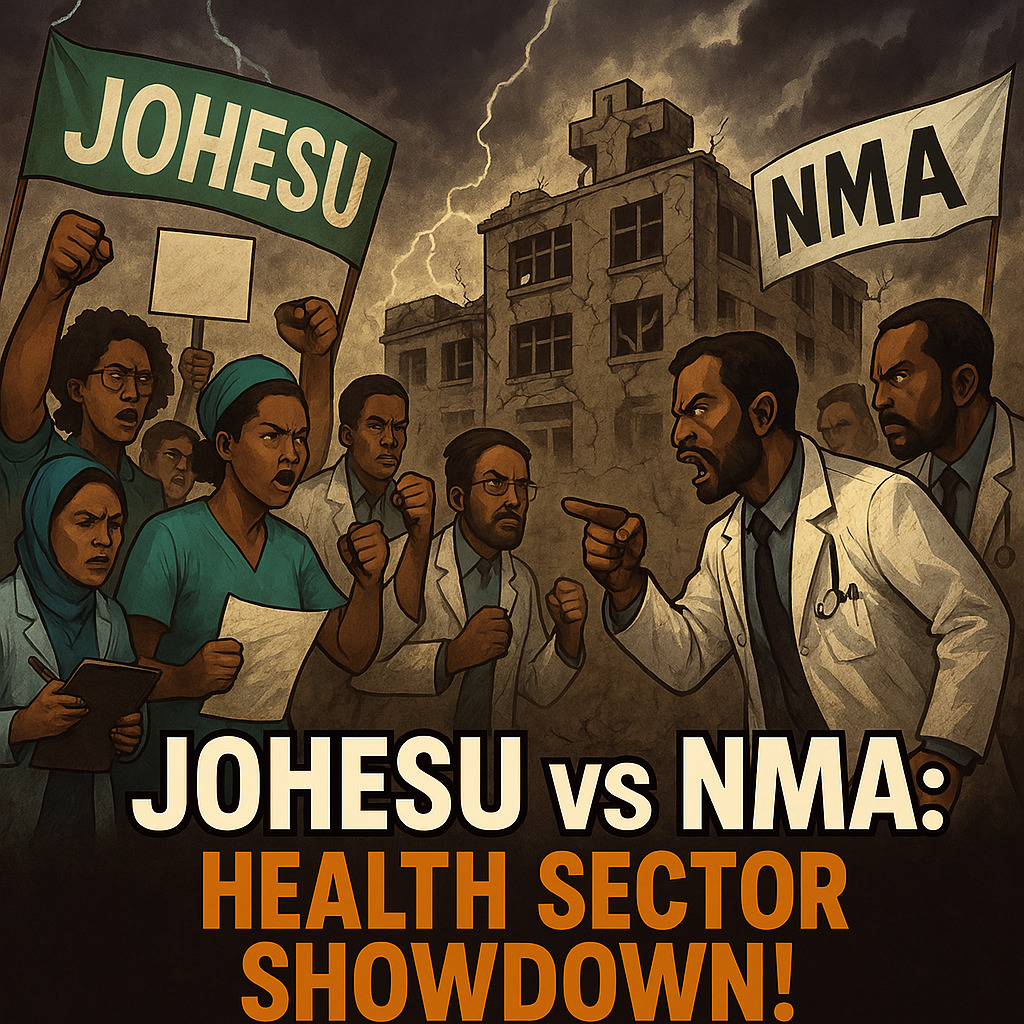The World Health Organization on Friday declared the recently discovered B.1.1.529 strain of the coronavirus disease which was detected in Southern Africa as a variant of concern. The classification of the variant, which was tagged “omicron,” was announced in a statement issued by the global health agency.
“Based on the evidence presented indicative of a detrimental change in COVID-19 epidemiology, the WHO has designated B.1.1.529 a ‘variant of concern’ named ‘OMICON’. This variant has a large number of mutations, some of which are concerning, preliminary evidence suggests an increased risk of reinfection with this variant as compared to other variants of concern,” the statement read.
“We understand that people are concerned, what is really important as an individual is to lower your chances of exposure”. WHO technical lead on COVID-19, Maria Van Kerkhove said, while urging people to reduce their chances of contracting the virus.
Saturday PUNCH reports that following the detection of the new strain, certain countries across the world have banned flights to Southern Africa.
Checks by one of our correspondents on Friday revealed that a total of about 50 confirmed cases have been identified in South Africa, Hong Kong and Botswana. The confirmed cases in Botswana and Hong Kong were detected among travellers from South Africa.
In response, Britain banned all travel from the country and five other southern African nations, namely Botswana, Eswatini, Lesotho, Namibia and Zimbabwe starting at noon local time on Friday.
On Thursday, Israel also announced that it was barring its citizens from travelling to South Africa. The travel restriction for its citizens also included Lesotho, Botswana, Zimbabwe, Mozambique, Namibia and Eswatini to its highest-risk travel list. Belgium and Saudi Arabia have also suspended flights to the Southern African country.
ident of the European Union Commission Ursula von der Leyen in a Tweet via her Twitter handle on Friday also said the EU will aim to halt air travel from the southern African region.
“The Commission will propose, in close coordination with Member States, to activate the emergency brake to stop air travel from the southern African region due to the variant of concern B.1.1.529.” She tweeted.
Meanwhile, analysis of the daily epidemiological trends of the coronavirus in Nigeria has revealed that Nigeria might slip into a fourth wave by the end of December 2021 following the slow rate of vaccination.
Experts including the commissioner of health for Lagos State, Professor Akin Abayomi have warned of a possible spike during the festive period.
However, the Nigeria Centre for Disease Control continues to advocate for mass vaccination and adherence to public health protocols.
Over 3.4m persons fully vaccinated in Nigeria – FG
The National Primary Health Care Development Agency had on Friday declared that only 3,487, 298 eligible persons living in Nigeria have completed their vaccination against the Coronavirus, having received their second doses. While a total of 6,242, 224 eligible persons had received their first doses of the Covid-19 vaccine.
During the inauguration of a mass vaccination exercise for Nasarawa State on Friday, Dr Faisal Shuaib, Executive Director, NPHCDA, said, “From the data above, it is clear that Nigeria is still far from reaching its target of vaccinating almost 112 million of its eligible population.
“As it stands, we have only been able to vaccinate 8.1 per cent of eligible Nasarawa residents with the first dose and only 5.3 per cent are fully vaccinated. This is below our target which is to vaccinate all eligible residents with the COVID-19 vaccines to ensure full protection against the deadly virus. To address the logistical problems of getting to vaccination sites by Nigerians, the Federal Government in collaboration with the State Government has expanded the vaccination sites in Nasarawa State. The COVID-19 vaccines are now available in our public health facilities, designated private health facilities, shopping malls, open markets, schools, general hospitals, tertiary health institutions, recreation parks, religious centres, motor parks and other designated sites. The main aim of the mass vaccination campaign is to vaccinate 50 per cent of Nigeria’s eligible population by January 2022.
Shuaib encouraged Nasarawa residents, who are 18 years and above to come out en masse to receive the vaccines to protect themselves, their loved ones and their communities.
According to Shuaib, the campaign for mass vaccination was geared by the Federal Government to ward off a potential 4th wave of the pandemic, especially given the festive period characterised by large gatherings with the risk of spread of the virus. He also said that the campaign was a carefully designed service delivery strategy to rapidly increase the number of fully vaccinated eligible people and fast track the country’s economic and social recovery.





